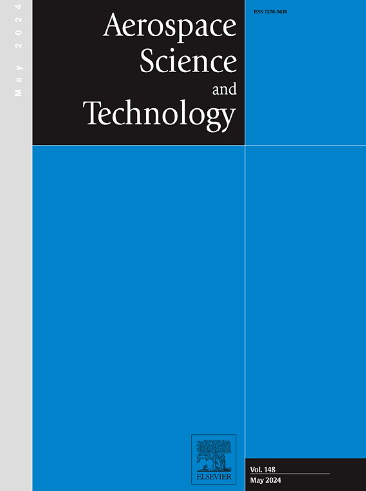基于迁移学习贝叶斯神经网络的多保真度跨声速气动载荷估计
IF 5
1区 工程技术
Q1 ENGINEERING, AEROSPACE
引用次数: 0
摘要
多保真度替代模型在航空航天应用中特别有趣,因为它们结合了低保真度模拟的计算效率和高保真度模型的精度。这种方法通常通过数据融合实现,旨在降低数据生成的成本,同时保持预测的准确性。尽管传统的机器学习技术被广泛用于改进代理和执行数据融合任务,但仍然需要新的方法来进一步提高预测可靠性,特别是在不确定性量化方面,而不会大大增加生成高保真训练样本的计算成本。在这项研究中,我们提出了一个设计用于跨声速气动数据多保真度预测的贝叶斯神经网络框架,利用迁移学习来整合不同保真度的计算流体动力学数据。该模型的概率性质还允许对输入空间中的不确定性进行量化,使其非常适合分析所研究的跨音速气动响应的固有复杂性和非线性行为。我们的研究结果表明,所提出的多保真贝叶斯模型在不可见数据的精度和泛化能力方面都优于经典的数据融合Co-Kriging方法。本文章由计算机程序翻译,如有差异,请以英文原文为准。
Multi-fidelity transonic aerodynamic loads estimation using Bayesian neural networks with transfer learning
Multi-fidelity surrogate models are of particular interest in aerospace applications, as they combine the computational efficiency of low-fidelity simulations with the accuracy of high-fidelity models. This methodology, often implemented via data fusion, aims to reduce the cost of data generation while preserving predictive accuracy. Despite the widespread use of traditional machine learning techniques to improve surrogates and perform data fusion tasks, there remains a need for novel approaches that further improve predictive reliability—particularly in terms of uncertainty quantification—without substantially increasing the computational cost of generating high-fidelity training samples. In this study, we propose a Bayesian neural network framework designed for multi-fidelity prediction of transonic aerodynamic data, employing transfer learning to integrate computational fluid dynamics data of varying fidelities. The probabilistic nature of the model allows also quantification of the uncertainty in the input space, making it well suited for analyzing the inherently complex and nonlinear behavior of the transonic aerodynamic responses under investigation. Our results demonstrate that the proposed multi-fidelity Bayesian model outperforms classical data fusion Co-Kriging method, both in accuracy and generalization capabilities on unseen data.
求助全文
通过发布文献求助,成功后即可免费获取论文全文。
去求助
来源期刊

Aerospace Science and Technology
工程技术-工程:宇航
CiteScore
10.30
自引率
28.60%
发文量
654
审稿时长
54 days
期刊介绍:
Aerospace Science and Technology publishes articles of outstanding scientific quality. Each article is reviewed by two referees. The journal welcomes papers from a wide range of countries. This journal publishes original papers, review articles and short communications related to all fields of aerospace research, fundamental and applied, potential applications of which are clearly related to:
• The design and the manufacture of aircraft, helicopters, missiles, launchers and satellites
• The control of their environment
• The study of various systems they are involved in, as supports or as targets.
Authors are invited to submit papers on new advances in the following topics to aerospace applications:
• Fluid dynamics
• Energetics and propulsion
• Materials and structures
• Flight mechanics
• Navigation, guidance and control
• Acoustics
• Optics
• Electromagnetism and radar
• Signal and image processing
• Information processing
• Data fusion
• Decision aid
• Human behaviour
• Robotics and intelligent systems
• Complex system engineering.
Etc.
 求助内容:
求助内容: 应助结果提醒方式:
应助结果提醒方式:


